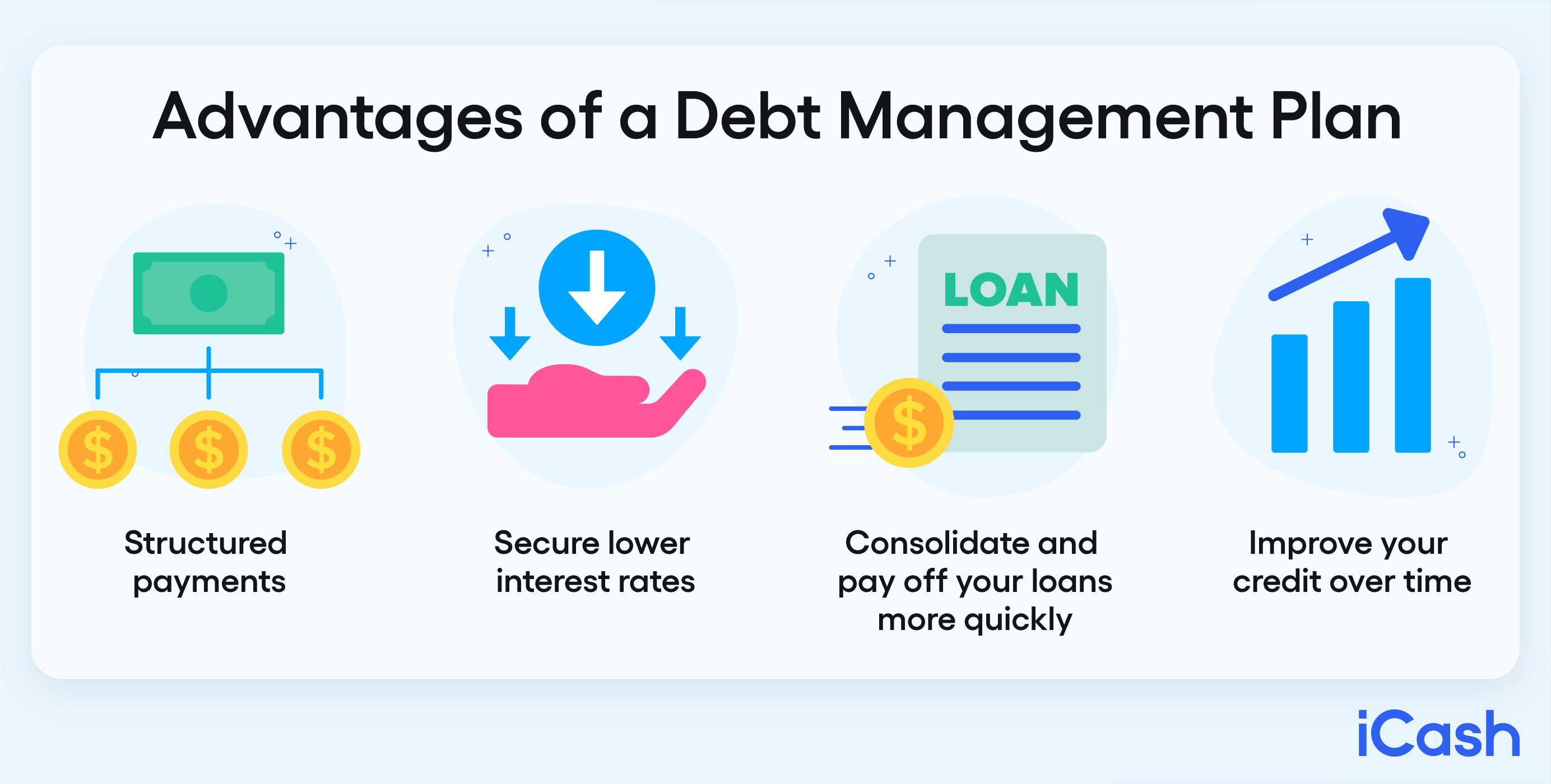A Total Guide to Debt Management Plan Services for Debt Loan Consolidation
A Total Guide to Debt Management Plan Services for Debt Loan Consolidation
Blog Article
Professional Tips and Approaches for Carrying Out a Successful Debt Monitoring Strategy
When it comes to navigating the intricacies of financial debt management, having a well-thought-out strategy is essential for achieving monetary stability. From assessing your current economic standing to working out with creditors, each step plays a crucial role in shaping a successful debt administration plan.
Examining Your Current Financial Scenario
Before embarking on a debt administration plan, it is crucial to thoroughly evaluate your current financial standing. Comprehending your monetary situation is the foundational action in the direction of efficiently handling and minimizing your financial obligation. Begin by putting together a breakdown of all your financial debts, including impressive equilibriums, passion prices, and minimal month-to-month settlements. This will certainly offer a clear summary of the level of your financial responsibilities. Furthermore, assess your income resources and regular monthly expenditures to identify your non reusable income offered for financial obligation settlement.

Establishing a Realistic Budget Plan
Recognizing your current financial circumstance lays the groundwork for establishing a realistic budget that lines up with your financial debt management goals and monetary capacities. When developing a spending plan, it's critical to properly track your revenue, expenditures, and debt responsibilities. By classifying your expenditures, you can identify locations where you might need to reduce back to release up funds for debt settlement.

Focusing On and Taking On Financial Debts
To successfully reclaim control of your funds and work in the direction of financial security, prioritizing and tackling your debts is an essential action in your financial obligation management plan. Beginning by listing all your financial debts, consisting of charge card, lendings, and any other exceptional balances. Determine high-interest debts that are costing you one of the most cash and focus on paying them off first. By concentrating on these high-interest debts, you can save cash in the lengthy run and decrease the overall amount you owe.
After recognizing your high-interest financial debts, take into consideration making use of techniques like the financial obligation snowball or financial obligation avalanche approach to pay them off systematically. The financial obligation snowball technique involves paying off the tiniest the original source financial debts first, while the financial obligation avalanche technique focuses on financial obligations with the greatest rates of interest. Select the method that aligns best with your monetary goals and inspires you to maintain making progress.
Furthermore, take into consideration bargaining with lenders for lower rate of interest or establishing a layaway plan if you're having a hard time to fulfill your present obligations. Looking for aid from a debt counselor or economic advisor can also supply beneficial insights and support on exactly how to successfully tackle your financial debts - debt management plan services. By prioritizing and resolving your financial obligations purposefully, you can pave the means towards a debt-free future and improved monetary well-being
Negotiating With Lenders
When engaging in debt monitoring, discussing with financial institutions is an important action in the direction of discovering equally useful solutions for financial obligation settlement. Prior to starting negotiations, it is important to have a clear understanding of your monetary situation, including your revenue, expenditures, and the complete quantity of debt owed.

Structure Healthy Economic Behaviors
Incorporating consistent budgeting methods is necessary for cultivating healthy and balanced monetary habits. Budgeting enables individuals to track their revenue and expenses, enabling them to make enlightened choices regarding their financial top priorities. Setting details monetary objectives, such as saving for emergency situations or retirement, can supply a clear roadmap for taking care of money properly.
One more key facet of structure healthy economic behaviors is living within one's means. This includes investing less than what is made and preventing unneeded financial debt. Embracing a frugal way of this website thinking and distinguishing in between demands and wants can assist people make more prudent spending choices.
Frequently evaluating monetary declarations and checking credit rating reports are essential routines that advertise financial awareness and duty. By remaining notified regarding their monetary standing, individuals can recognize prospective issues early on and take proactive steps to address them.
Additionally, developing a cost savings practice, even with small amounts, can add substantially to long-term monetary safety and security. Conserving frequently not just builds a monetary cushion for a fantastic read unanticipated costs however also promotes a feeling of self-control and responsibility towards finance. By constantly exercising these habits, people can lay a solid foundation for a steady economic future.
Verdict
Finally, executing a successful debt management strategy requires a detailed assessment of one's financial situation, the advancement of a practical budget, focusing on and taking on financial debts, bargaining with lenders, and building healthy and balanced monetary habits (debt management plan services). By following these specialist ideas and strategies, people can take control of their financial resources and work towards achieving economic stability and freedom from financial debt
Comprehending your current monetary situation lays the foundation for establishing a realistic spending plan that aligns with your debt management objectives and financial capabilities.To efficiently reclaim control of your finances and work towards financial stability, prioritizing and tackling your financial obligations is a crucial step in your debt management strategy.After identifying your high-interest financial obligations, take into consideration utilizing methods like the debt snowball or financial debt avalanche approach to pay them off methodically. The financial obligation snowball method includes paying off the tiniest financial obligations first, while the financial debt avalanche technique focuses on financial debts with the greatest rate of interest rates.When involving in debt monitoring, discussing with lenders is a crucial action towards locating mutually advantageous solutions for financial debt payment.
Report this page